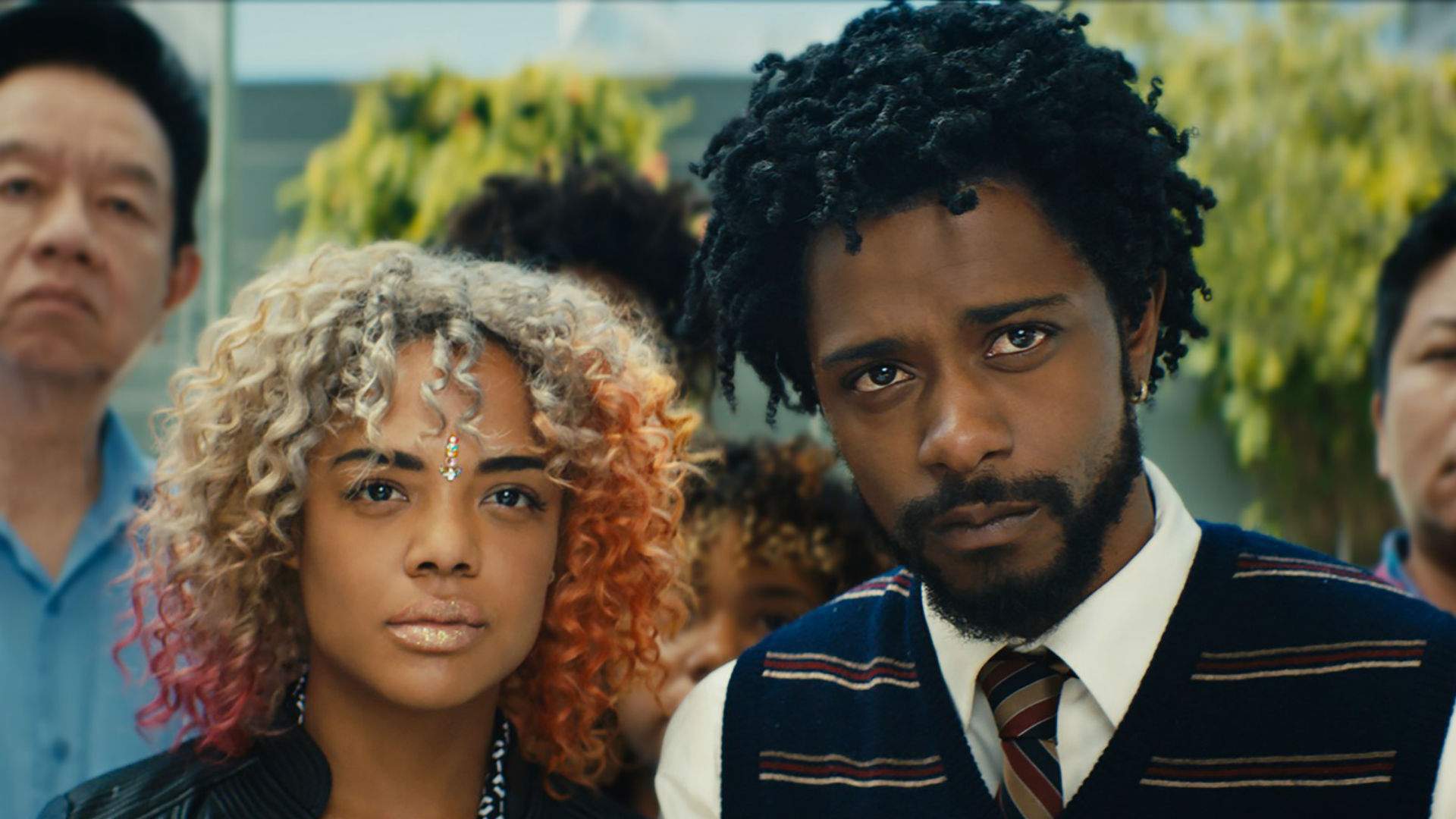Sorry to Bother You
Boots Riley's filmmaking debut is a savage and surreal sci-fi comedy satire that refuses to be shrugged off, ignored or overlooked.
Overview
UPDATE, April 26, 2021: Sorry to Bother You is available to stream via Google Play, YouTube Movies, Amazon Video and iTunes.

How do you make a movie about the perils of apathy and complacency? A film that holds a mirror up to today's gleefully consumerist, corporation-driven society? A portrait of a world where money means power, and where both mean exploiting the many to enrich the few? If you're The Coup frontman turned first-time filmmaker Boots Riley, you also make a satirical comedy set in an alternate version of present-day Oakland, and a science-fiction fantasy that combines surreal images and scenarios with a savage message. You expose and skewer the status quo when it comes to race, class and wealth — and you tap into the anxiety that's become the prevailing mood of the 21st century. In short, you make Sorry to Bother You.
Discussing the state of the world with with pals Salvador (Jermaine Fowler) and Squeeze (Steven Yeun), Cassius 'Cash' Green (Lakeith Stanfield) is offered a nugget of wisdom about the reason that nothing ever changes. "If you get shown a problem, and you have no idea how to control it, then you just decide to get used to the problem," he's told. Consider Sorry to Bother You the counterpoint — an audacious, absurd, amusing and highly entertaining rebuttal of simply accepting, assimilating, trying to conform and aiming to please. Riley takes Cash down a path that he can't merely grin and bear, in a picture that recalls Get Out and BlacKkKlansman in a vital way: it refuses to be shrugged off, ignored or overlooked.
Get comfortable, because it's a wild ride. That said, being comfortable and content is a thorny notion in a film that paints the masses as workhorses for the rich, has everyone loving a reality show called I Got the S#*@ Kicked Out of Me!, and makes its protagonist rap for the braying approval of a largely white party. When viewers first meet Cash, he's anything but comfortable. In fact, he's waving about a fake 'employee of the month' plaque at a job interview, living in his uncle's (Terry Crews) garage with his artist girlfriend Detroit (Tessa Thompson) and barely managing to get by. He still gets the telemarketer gig, because they happily admit they'll hire anyone, but hawking encyclopaedias by phone is as soulless and soul-destroying as it sounds.
Then a colleague (Danny Glover) gives Cash a tip: "use your 'white' voice". Taking his advice, he starts smooth-talking customers with tones that resemble Arrested Development's David Cross. Success follows, with Cash skyrocketing through the ranks to join the company's elite employees on the luxuriously appointed top floor. While his basement-dwelling ex-coworkers strike for better conditions, Cash is earning more cash than he's ever dreamed of, as well as the attention of hard-partying frat-boy CEO Steve Lift (Armie Hammer). He's also making multi-million dollar sales spruiking Lift's WorkFree concept, which promises ordinary folks a roof over their head and three meals a day if they sign a lifetime labour contract.
Corporatised slavery is just the beginning of Cash's trip down the rabbit hole, and Stanfield is the perfect guide. On a resume that boasts Get Out, Atlanta and being one of the most memorable things about The Girl in the Spider's Web, Sorry to Bother You stands alongside Short Term 12 as the actor's best work. Here, he's everyone, including the marginalised and overlooked, and the minority communities forced to adjust to the prevailing world order. He's the everyday man unwillingly thrust into the spotlight, or laying awake worrying about existence, or just attempting to do what's right. For a while, he's also someone who gets shot from the bottom to the top and is willing to stomach his Faustian bargain. He's in great company, with Thompson, Yeun and Hammer all standouts. But Stanfield is Riley's anchor in a sea of chaos.
And what chaos there is. Energy, zeal and fury, too, with the movie jam-packed with ideas, anger, insights and off-the-wall inclusions. Indeed, when a Michel Gondry-esque claymation sequence pops up, it's just one of the picture's stunning sights. Within such busy frames, there's little about modern society that Riley doesn't dissect and lambast, because, unlike the masses, he's not willing to look the other way. His lead character might adopt a white voice to survive and thrive, but the writer-director's voice is all his own (it's also literally heard on the soundtrack, which is partly supplied by The Coup). Like Cash, who's visually dropped into the lives of the people he calls, Sorry to Bother You's audience is submerged in the impassioned mindset of the film's creator. And Riley's not sorry to bother anyone.





